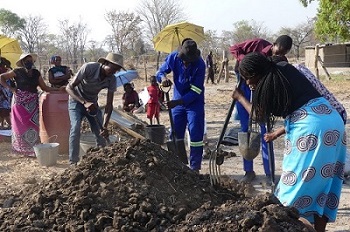
Invest in improved farming practices
Small holder subsistence forms of agriculture being the dominant farming systems in the Okavango basin are in the process of drastic change due to decreasing land availability.
According to researchers from the University of Hamburg, conducting a research project in the larger Kavango basin with emphasis on its economic value, households are at risk of falling into a poverty trap as they cannot make the investments needed for the adoption of improved farming practices.
The farming systems with regard to sustainability were measured using three efficiency indicators. Land efficiency, labour efficiency and energy efficiency or the energy return on investment which shows how much energy needs to be invested in the agricultural system compared to how much energy, in terms of food, is produced by the agricultural system. It indicates whether an agricultural system makes sense in the long term.
The project involved 140 researchers from eight countries and 23 universities.
It was found that the intensification of smallholder production is needed to avoid rural impoverishment and to meet the food needs of the growing population.
In all the studied areas, the soil fertility of dominant parts of the landscape is very low but not in the upper catchment with its low population density and thus higher land availability in areas such as Cusseque.
The land scarce high population density, mid-river areas of the basin such as Mashare, where farmers are increasingly forced to convert these areas for crop production showed skewed distribution of access to and use of natural resources because of intensified and possibly exploitative natural resources used by the wealthier smallholders.
A poverty trap seems to have already affected some poorer households in Mashare but not other researched centre sites.
If no additional fertility-management measures are introduced to high population density areas, widespread soil degradation occurs. The lack of knowledge consequently traps farmers into a cycle of poverty, without the necessary means and financing to break the cycle.
The researchers also concluded that acute investment in agricultural knowledge systems adapted for these areas are needed. Which requires government support through direct and indirect support for many rural farmers as they lack the capacity to invest in improvement of farming practices.
It is also recommended that additional support measures should include training and empowerment for agricultural extension service officers and improvement in exteansion services. Additional access to opportunities for small-scale financial credits such as micro credit.
They also recommended that Research and Development activities for improved and locally adapted farming systems have to be tested before application, together with agronomic field research incorporating existing institutions.
However, complications are abound as the voluntary adoption of these practices are taken up only when low and erratic yields pose a threat to smallholder families’ survival the findings revealed.











































